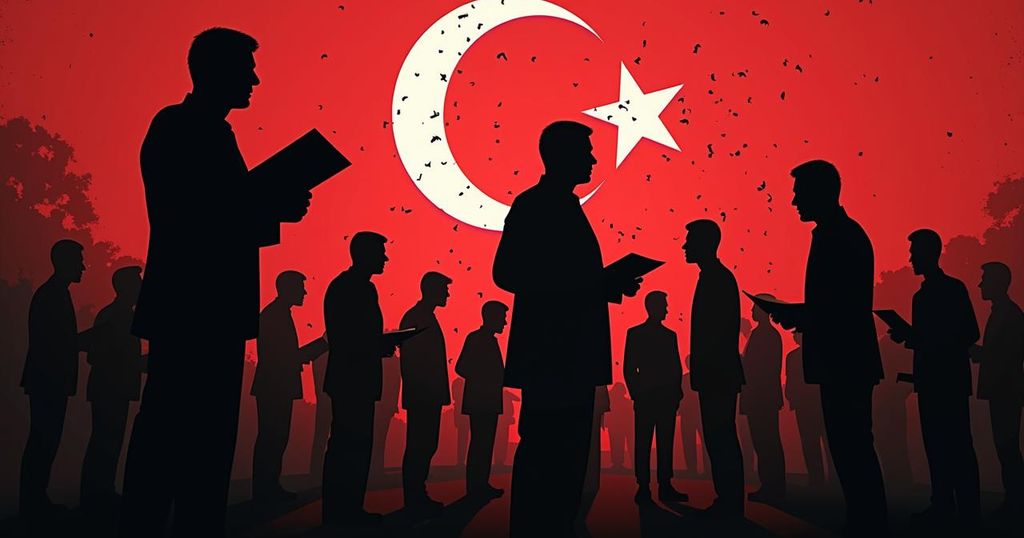Election Day in Tunisia: Voter Apathy Overshadowed by Political Instability

On October 6, 2024, Tunisians voted in a presidential election characterized by low voter turnout, with under 30% participation. President Kais Saied faced challengers Zouhair Maghzaoui and imprisoned Ayachi Zammel. Many opposition groups boycotted the election, citing authoritarianism, while Saied is expected to win easily despite criticism of the electoral process.
On October 6, 2024, Tunisians participated in a presidential election characterized by significant voter apathy. The election featured President Kais Saied, who was seeking re-election, and two challengers—Zouhair Maghzaoui and Ayachi Zammel, the latter of whom was imprisoned prior to the election. Despite a turbulent political landscape that has seen a wave of arrests among potential challengers, Saied is widely expected to secure an easy victory. Historically, Tunisia has faced political instability since the Arab Spring, with Saied, a former law professor, gaining power amid dissatisfaction with the previous political establishment. His first term has been marked by economic difficulties and controversial moves including the suspension of parliament and a constitutional overhaul that expanded presidential powers. The turnout for this election was reportedly under 30%, notably lower than previous elections, indicating widespread disillusionment among the voting populace; however, it surpassed the dismal figures from past legislative elections. Many opposition groups accused the election of lacking legitimacy, leading some potential voters to abstain while others, like taxi driver Khaled Lamsi, stated the importance of participation: “I want the new president who will be elected to do good things for our country…” Additionally, the election commission faced criticism for limiting candidates to just three, despite a court ruling that should have reinstated others. With the voting concluded and the counting of ballots underway, the results will further define the political landscape in Tunisia amid ongoing concerns regarding the presidency’s growing power and the state of democracy in the country.
Tunisia’s political landscape has been fraught with challenges following the 2011 Arab Spring, where the country was the first to oust a dictator. Since then, political strides have often been marred by instability and dissatisfaction with ruling authorities. President Kais Saied came into power leveraging public anger against the established political system. His governance has been noted for its significant shifts toward centralization of power and controversial reforms. The current election is critical as it is the first since amending the constitution to enhance presidential authority, and it unfolds against a backdrop of arrests and the imprisonment of political rivals, which raises questions about the democratic integrity of the electoral process.
In summary, the 2024 Tunisian presidential election has revealed stark symptoms of voter disinterest, distrust in the electoral process, and the consolidation of power within the presidency. Despite the increased participation as compared to previous legislative elections, the overall turnout signifies a troubling trend of apathy towards the democratic process in Tunisia. The results of this election may significantly impact the future of governance and political freedoms in the nation, as President Kais Saied stands poised to reinforce his rule amid ongoing criticism from opposition groups.
Original Source: apnews.com







